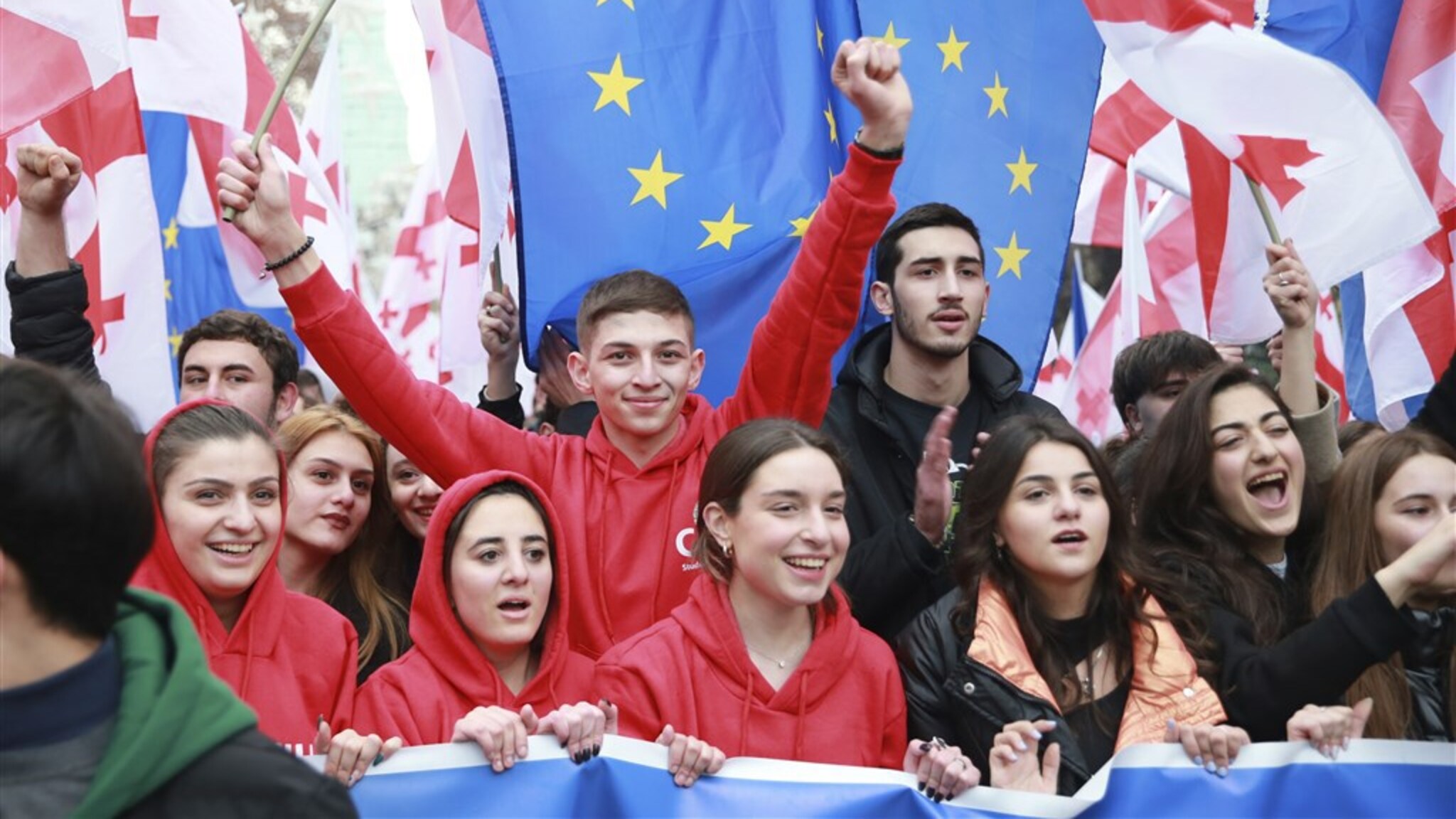“The news about Georgia has been completely overwhelmed,” says Caucasian analyst Gilger Groenefeld. He has just returned from the Georgian capital, Tbilisi, where he regularly goes for political work. He added, “The atmosphere was very festive. The European Union was the talk of the day. People took to the streets of their own free will, honking their car horns and waving the European flag.”
On Friday evening there was a large gathering in the central square of Tbilisi. Thousands of people came here. Prime Minister Garibashvili spoke of a “historic decision.”
The Georgians were looking forward to this moment. Graphic designer Giorgi Pobiashvili (40 years old) told Reuters, “My dream is to see Georgia as part of the European family.” “I have traveled all over the world, but in Europe I feel better than anywhere else.”
For winemaker Timur Nenushvili, it also brings many practical benefits. “We already export a lot of wine to Germany and France, but if we become a member of the European Union, we expect that we will also be able to export our wines to other countries.” Georgians also know that their country still has a long way to go, but they are mentally prepared for it.
War in Ukraine
If someone had said two years ago that Georgia would now become a candidate country for joining the European Union, no one would have believed him. “At the end of 2021, Ukraine, Moldova and Georgia asked the EU: ‘What is our perspective on membership? Can we become a member?’ We were told no,” says Grunfeld. “Maybe not explicitly, but the message was: We will stick to the Western Balkans and not expand further for the time being.”
This was a huge disappointment for those three countries, but the full Russian invasion of Ukraine changed everything. President Zelenskyy quickly announced that he would apply for membership, and Moldova and Georgia also followed suit. “The EU responded quickly to this and seized on the political momentum,” Grunfeld says. “The urgency was there. The EU can’t provide much of a military balance, but this is a signal to Russia.”
The first state in the Caucasus
Georgia is located in the Caucasus, a region in the extreme southeast of Europe that forms the border with Asia. It belonged to the Soviet Union until 1991.
Two regions in Georgia whose status remains disputed: Abkhazia and South Ossetia, which declared their independence in the 1990s and are supported by Russia. In 2008, Russia launched a war against Georgia to control these areas, and Russia has occupied them ever since. Only a few countries recognize these regions as independent countries.
stumbling block
Could this be a stumbling block to joining the European Union? “It depends on how the EU thinks you should deal with areas that are not under central authority,” says Grunfeld. “In any case, they will have to work on it and Georgia will have to engage in dialogue.”
Precisely because of Georgia’s location and history within the Soviet Union, potential membership in the European Union has enormous symbolic importance. “The EU says it is committed to expansion in the South Caucasus, which is also Europe, but it is on the other side of the Black Sea and feels far away to many people.” Other countries that could join the EU in the future are Armenia and Azerbaijan, although there are no concrete plans for this yet.
This is not only about political stability and security around the Black Sea, but economic interests also play a role. “This concerns, for example, alternative transportation corridors for gas and trade throughout Russia.”
‘Pro-European’ government
According to Grunfeld, Georgia was also a bit lucky because the European Union has now decided to make the country a candidate member. “Because the factor of political advantage is becoming increasingly undermined,” says Grunfeld. “Officially, the government is pro-European, in terms of votes.” Because about 80% of Georgians want to join the European Union. “But the government has turned 180 degrees in recent years.”
An example of this is the controversial “foreign agents” law that Georgia wanted to introduce at the beginning of this year. In practical terms, this means that organizations and media critical of the government will become more difficult to operate. A similar law also exists in Russia. Ultimately, there was such a large outcry from the population that the government had no choice but to withdraw the bill.
So Georgia bears responsibility for now falling behind Moldova and Ukraine on its way to joining the EU.
But why would Georgians vote for this government? “Opposition is hopeless,” Grunfeld explains. Until a few years ago, the ruling party already had a credible European story, with many steps taken to improve the economy, democracy and the rule of law. “People continue to choose the safety of a party they know that has also done good things, like building new roads.”
Some believe that granting candidate member status is symbolic. After all, it will take a long time before the country is truly ready to join. “By making Georgia now an EU candidate state, they hope to send a positive signal to the population, and this may also ensure different winds are blowing at the political level.”

“Infuriatingly humble social media buff. Twitter advocate. Writer. Internet nerd.”








